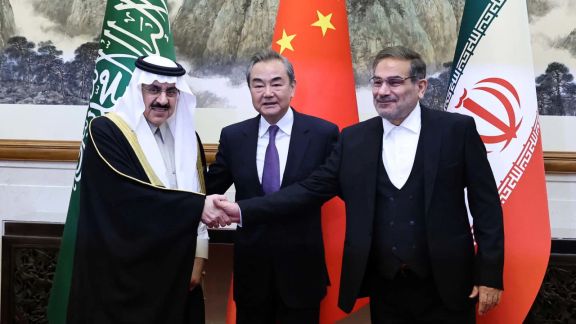Ukraine Downs Four Iranian Drones
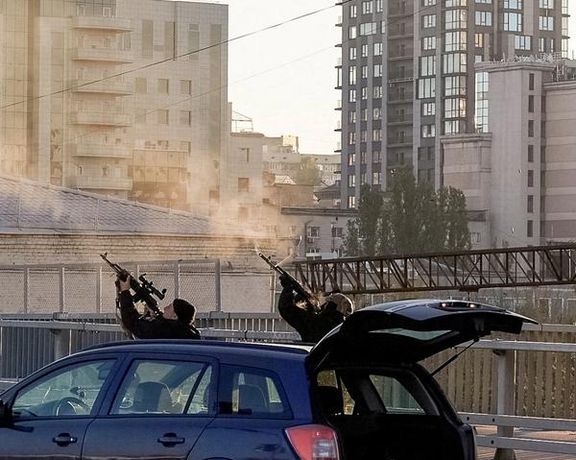
Four Iranian-made kamikaze drones launched by Russia have been shot down by Ukraine’s air defense, according to Kiev officials.

Four Iranian-made kamikaze drones launched by Russia have been shot down by Ukraine’s air defense, according to Kiev officials.
Ukraine's Air Force Command says it brought down the Shahed pilotless vehicles overnight, along with a Russian-made Orlan-10 drone.
The clash took place in the air over the northeast of Ukraine.
Russia has repeatedly used Iran-made drones as well as guided bombs in its invasion of Ukraine.
Russian long-range missile stockpiles have dwindled after repeated attacks on civilian targets since October when Moscow also began using hundreds of Shahed suicide drones, supplied in defiance of sanctions against weapons sales to the Moscow regime.
Iran first denied it had supplied drones to Russia but in early November foreign minister Hossein Amir-Abdollahian admitted the deliveries, but claimed they were sent before the Russian invasion.
There have been intelligence reports that Tehran might be planning to also supply long-range missiles to Russia.
The US and its NATO allies have strongly condemned Iran’s drone deliveries to Russia. Washington, which has stopped nuclear talks with Tehran, has indicated that it expects the deliveries to stop before any further negotiations take place.
Iran’s Supreme Leader Ali Khamenei completely denied Iran’s involvement in the war during a speech he delivered in mid-March.
Ukraine has had increasing success in shooting down the relatively slow-flying Iranian drones. On December 5, the military said it had downed 60 of 70 Shahed drones, but Kiev continues to request reinforcements to its air defense systems from the West.
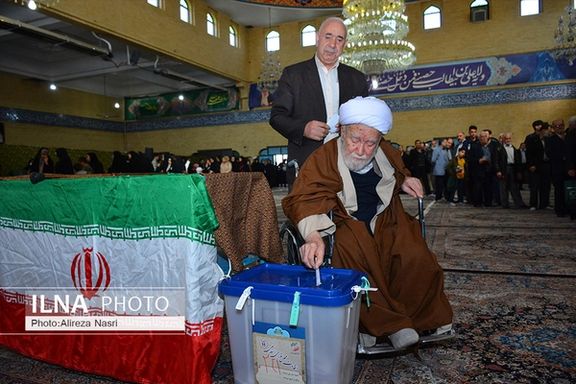
Ten months before the next parliamentary elections in Iran, regime politicians are concerned about arbitrary disqualification of candidates.
The Guardian Council, a constitutional body controlled by Supreme Leader Ali Khamenei, disqualified hundreds of candidates in the 2020 legislative elections and barred key presidential candidates in the 2021 presidential vote. The purpose was to hand over government control to Khamenei’s hard-line supporters.
The most prominent individual disqualified by the Council in 2021 was former parliament speaker Ali Larijani, considered a moderate conservative.
Last week, Larijani issued a statement denying any intention to run in the March 2024 parliamentary election, alluding to what transpired in 2021.
It should be noted that in the 44-year history of the Islamic Republic only regime insiders, loyal to the principle of clerical rule have been allowed to run for office. Those who had any ideas of secularism were persecuted and many had to leave the country.
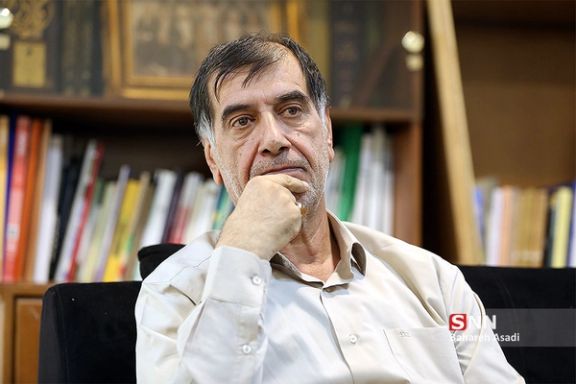
Explaining the Guardian Council's intervention in the elections through arbitrary vetting, prominent conservative politician Mohammad-Reza Bahonar told Entekhab news website on Sunday that one of the reasons the Council offered for Larijani’s disqualification was that he had good relation with former President Hassan Rouhani, despised by Khamenei loyalists.
Bahonar said: "If we are looking for high turnout in the upcoming elections, we need to open the political atmosphere rather than calling for our rivals' disqualification." He added that the country's officials should guarantee a healthy, secure and competitive election.
Meanwhile, Bahonar who was a lawmaker for seven 4-year terms, said the parliament dominated by hardliners should not be involved in revising election laws, as current lawmakers tend to make sure that no one other than themselves are allowed to run.
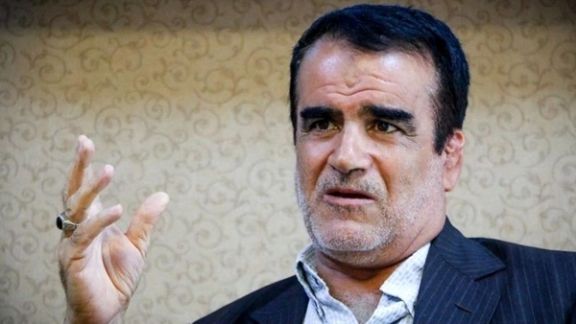
In another development, reformist activist Ali Mohammad Namazi told Rouydad24 website that what Larijani has said about purging or purification of political atmosphere by Iran's hardliners alluded to the Guardian Council's vetting of election candidates.
The “strict filtering” by the Council, he said, was meant to bar everyone other than conservative "insiders" from getting elected. "So, what Larijani said meant: In this situation we will skip the trouble of nominating ourselves as candidates and save the hardliners the trouble of getting rid of unwanted candidates," Namazi said.
He added that the regime's leader should know that this situation is not desirable and will push the country toward a political breaking point. Most Iranian politicians believe that political impasse already exists.
Another reformist figure who commented on the issue of vetting and the Guardian Council's intervention in Iranian elections was reformist journalist and activist Ahmad Zeidabadi who spoke with Khabar Online website on Sunday.

Zeidabadi said that Larijani's comments were meant to convey the message that he is not going to be deceived once again by playing according to the rules laid down by hardliners.
According to Zeidabadi, Larijani has called for returning to the political processes before the 2021 election, that is allowing various political factions within the system to nominate their candidates for the presidency and giving them equal chance to garner the voters' support.
Meanwhile, answering a question by the conservative Nameh News website that asked why former President Mohammad Khatami no longer tells the people to take part in elections in the same way he did before, former lawmaker Jalal Jalalizadeh said such a call will be effective only if the people are assured that there will be a free and fair election. In the current situation, even if Khatami calls on the people to go to the polls, no one will listen to him, Jalalizadeh said.
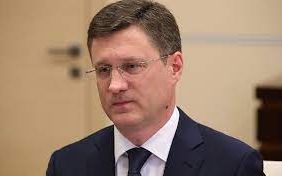
Russian Deputy Prime Minister Alexander Novak will visit the Islamic Republic of Iran on May 16, Iranian local media reported on Sunday.
Novak is expected to meet with Iranian Oil Minister Javad Owji and Central Bank Governor Mohammad-Reza Farzin during his two-day stay in Tehran.
He will also attend the 27th International Oil, Gas and Petrochemical Exhibition opening in Tehran on May 17.
There were no details provided about the Russian delegation or topics of the upcoming agenda.
Iranian Deputy Oil Minister Ahmad Asadzadeh said on April 25 that Novak and Russian Central Bank Governor Elvira Nabiullina will visit Iran in May for trade and economic agreements.
As tension between the United States and Iran have increased since last year, Tehran and Moscow have been trying to boost bilateral relations.
As nuclear talks broke down with Iran last September and Russia's invasion of Ukraine dragged on, the United States and Europe imposed more sanctions on Iranian and Russian entities and the two pariah states expanded their ties.
In July, the National Iranian Oil Company (NIOC) and Russian gas company Gazprom signed a memorandum of understanding (MoU) worth $40 billion. NIOC and Gazprom CEOs signed the deal on the day Russian President Vladimir Putin arrived in Tehran for a summit with his Iranian and Turkish counterparts.
There were many projects covered by the MoU, including expanding the Kish and North Pars gas fields, improving the South Pars field, developing six new oilfields, increasing gas and product swaps, completing various liquefied natural gas (LNG) projects, and building gas export pipelines, to name a few.
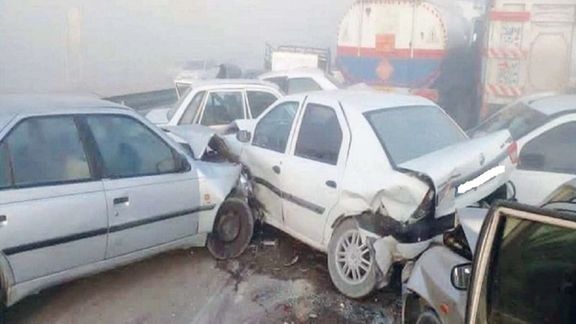
Traffic police in Iran says in the last 10 years, the quality of domestically produced cars has not improved “even ne percent.”
Deputy Traffic Police Chief, Taymour Hosseini told Tasnim news agency on Sunday that Pride and Peugeot 405 still cause fatal accidents although their production has stopped. Both cars are copies of much older foreign cars produced with inferior quality.
“The authorities have announced the production of Pride and Peugeot 405 has stopped, but in practice similar cars are being produced,” he added.
According to Hosseini, the number of people killed in road accidents has even increased in recent years.
"According to figures announced in the past Iranian year [ending on March 20], 19,491 people lost their lives in traffic accidents, which shows a 16% increase compared to the previous year,” he underlined.
Meanwhile, Kamal Hadianfar, Traffic Police Chief, said in a press briefing on Sunday that "Last year, two to three people died in car accidents every hour, while 25 others were injured.”
Many Iranian officials and authorities, including President Ebrahim Raisi, are critical of the local car industry, with pundits blaming a “mafia-like” influential group behind a ban on car imports, to eliminate competition.
Hadianfar once described Iranian cars as “death wagons”, and criticized manufacturers for importing parts from China, saying there is no effective quality control.
Iran's automotive industry, the county’s largest after oil and gas, employs 700,000 workers.
With around 20,000 annual deaths, Iran has a poor traffic safety record. According to World Health Organization (WHO) data published in 2018, road traffic accident deaths in Iran reached 21,831 or 6.5 percent of all fatalities.
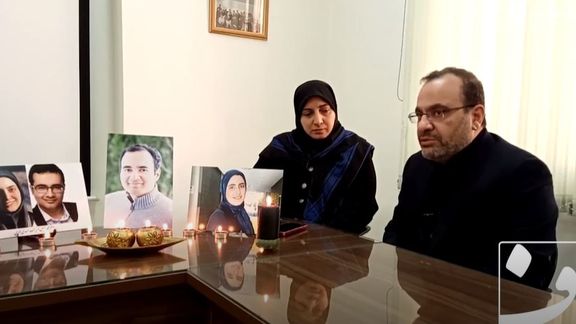
Father of two victims who died when Iran’s IRGC shot down a Ukrainian airliner says the regime still refuses to release documents proving the act it was intentional.
Dr. Mohsen Asadi-Lari, a former high-ranking health ministry official who lost both his children, Mohammad-Hossein and Zeinab, in the downing of the Ukrainian plane on January 8, 2020,told Didbaniran website Sunday that there is evidence the shooting was intentional, but the authorities would not release the evidence.
Iranian authorities who first claimed it was air crash due to a mechanical problem, three days after the incident admitted the plane was shot down with 176 people onboard, but insisted that it was due to human error.
Asadi-Lari said they asked the court to investigate the evidence proving that firing of two anti-air missiles at he plane was intentional and also demanded that the data to be released to them, but the court did not pay attention. He said that the information recorded on the plane’s flight recorder – known as the black box -- would definitively impact the final rulings.
He added that the conversations between the plane and the control tower can shed light on the circumstances of the missile attack. “We are sure that he deliberately triggered the attack and we have raised this in the court in different ways," he said about the missile operator.
Asadi-Lari added that the prime suspect in the case, identified as a Major Mehdi Khosravi, will be released in the near future because according to Iran’s laws he has spent about a third of his sentence. More than three years have passed since the incident and Khosravi was sentenced to 10 years in prison.
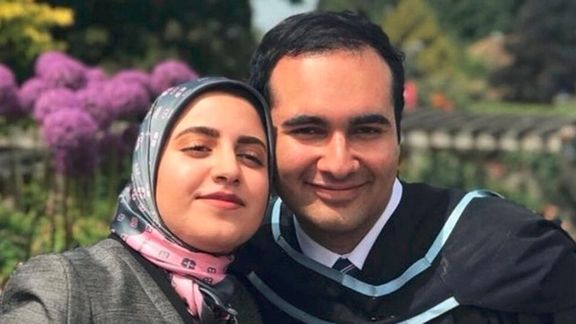
He claimed that Khosravi has been kept in solitary confinement since January 2020, saying, “Anyone familiar with Iran’s prison and judicial matters knows what it means to be in solitary confinement.” His remarks implicitly pointed to the fact that the regime does not want him to talk about the details of the incident.
“Compare the case of this plane with the case of the executed protestors, who were hanged for blocking a street or setting fire to a trash bin,” he said, adding that 176 innocent people were killed, and the culprit can go free after 40 months in prison.
Asadi-Lari clarified that the family do not seek execution for the officer because he was a service member and was doing his job, but they want the truth to be revealed.
Asadi-Lari and his wife Dr. Zahra Majd earlier insisted that the ten low-ranking military personnel on trial are not the real culprits. They claimed Khosravi was an expert in the Tor-M1 surface-to-air system that shot down the plane and that it was unbelievable that he had made the decision based by error.
Ukraine's flight PS752 was shot down on January 8, 2020, as it took off from Tehran’s Imam Khomeini International Airport. Only hours earlier, the IRGC had fired more than a dozen missiles at Iraqi bases hosting US troops in retaliation for the killing of the IRGC Qods Force Commander Qassem Soleimani by a targeted US drone strike just five days earlier.
Despite expecting retaliation from the US, the IRGC which is responsible for air defense of the capital did not close the civilian airspace in the early morning hours of January 8.
Asadi-Lari and his wife, both professors at Iran Medical Sciences University, say the whole family, including their two children who were students in Canadian universities, were devastated by Soleimani's killing and were very worried about a US retaliation for Iran's missile attack while the family was on their way to the airport. Before the flight took off, their son Mohammad-Hossein had been praying for Soleimani who was buried the day before.
Unlike parents and family members of many other victims of the tragedy, the Asadi-Lari family are not members of the Canada-based association representing victims' families. The association does not recognize the eligibility of the Islamic Republic's Judiciary for investigating the incident and has repeatedly called for top Iranian officials, including Supreme Leader Ali Khamenei, as commander-in-chief of the Armed Forces, to be held responsible.
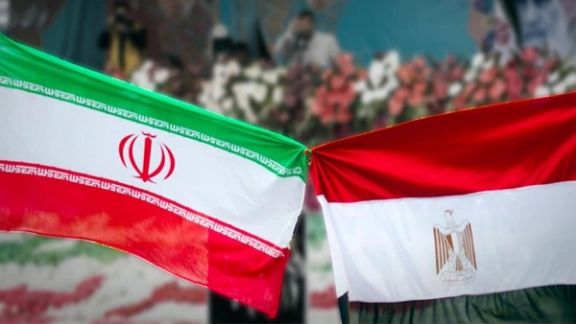
Iran is looking towards mending fences with Egypt in the wake of Tehran signing a China-brokered deal for détente with Saudi Arabia.
Iranian lawmaker Fada-Hossein Maleki, a member of the parliament’s National Security and Foreign Policy committee, said in an interview with Tasnim news agency published Sunday that talks to bolster ties between Iran and Egypt are being held regularly in Iraq.
It comes amid recent reports of Oman hosting Iranian and Egyptian officials for talks.
Maleki said: “Restoring relations between Iran and Egypt is very important... In the near future, bilateral relations will be restored, and we will witness the opening of embassies in both countries.”
Egypt has maintained diplomatic representation in Tehran since the Islamic revolution. However, the countries have only chargés d'affaires running the missions.
Malekei said that after the mooted reestablishment of ties Iranian President Ebrahim Raisi will hold a meeting with his Egyptian counterpart Abdel Fattah El-Sisi.
Also on Sunday, Iranian Foreign Minister Hossein Amir-Abdollahian told IRNA: “We have always welcomed the improvement of relations between Tehran and Cairo.”
Tehran and Cairo’s history of on and off relations predates the establishment of the Islamic Republic. Iran’s relations with Egypt, a close ally of Saudi Arabia and other Persian Gulf nations, have been fraught since the Shah fell in 1979. His subsequent refuge in Egypt, where he died and was buried in 1980, then ruled by President Anwar Sadat, damaged relations.
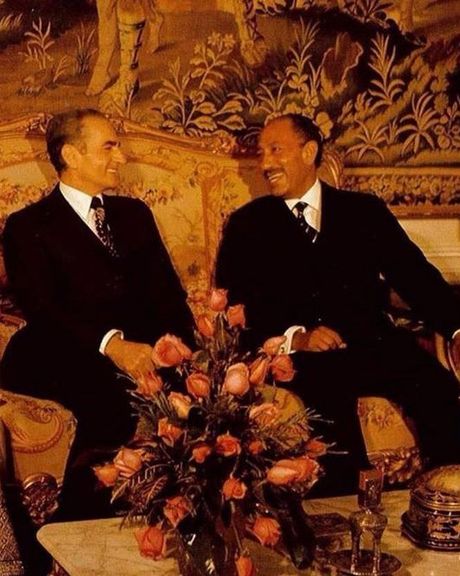
Iran named a street after Khaled Eslamboli, the man who assassinated Sadat because he gave asylum to the Shah. The name was changed following the resumption of ties with Saudi Arabia in anticipation of further extending the regional rapprochement.
Relations improved after President Hosni Mubarak resigned in 2011. In April 2012, Iran appointed an ambassador to Egypt weeks before then-president Mohamed Morsi visited Iran. However, continued tensions between Iran, Saudi Arabia and allied Western nations have long proven to be an obstacle.
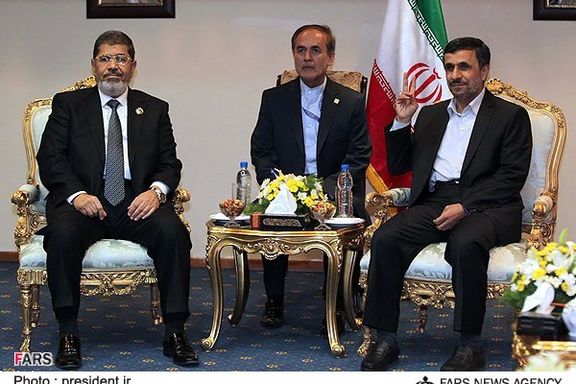
After years of bad relations, Iran and the Kingdom recently reached an agreement to end a seven-year diplomatic rift. Upon the visit of Iran's Minister of Economy to Saudi Arabia, Riyadh on Friday introduced its new ambassador to Tehran.
After Foreign Ministry spokesman Nasser Kanaani welcomed the Tehran-Riyadh détente, he added: “Egypt is an important country and the two countries value each other in the region. The region needs the synergy of Tehran and Cairo.”
In May, Hojjatollah Joudaki, a former Iranian diplomat in Egypt, said Tehran may be replacing idealism with pragmatism to end the long-standing impasse in its foreign policy, noting that a recent trend of changing tens of street names in Tehran could be the first move.
Qatar-affiliated media outlet Al-Arabi Al-Jadeed reported in June that Cairo and Tehran had agreed on “gradual expansion of Tehran-Cairo relations as well as coordination on the situation in the Gaza Strip and Syria.” The London-based pan-Arab daily also reported that Egyptian and Iranian intelligence official held a meeting in which Egypt warned Iran not to target Israelis on its territory.
